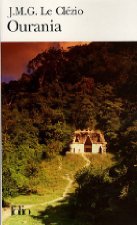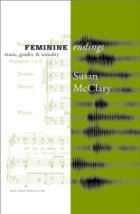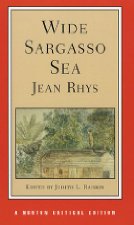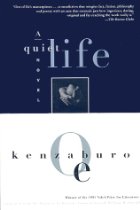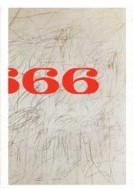
For better and worse, the fourth section of Roberto Bolaño's 2666 was, almost universally, not what I expected.
There were three things that did line up with my expectations: The Part About the Crimes was thought-provoking, well-written, and dealt, as the title implies, with the hundreds of sexual homicides committed against women in Mexican border-town Santa Teresa (Bolaño's fictionalized version of Ciudad Juarez). But the ways in which these things were true greatly surprised me, and I thought I would organize my thoughts around all those surprises.
First of all, after the slow, Lynchean tension and (as I said in my thoughts on Part 1) "bizarre, semi-surreal wrongness" of the first three parts of the novel, the reader suddenly finds herself, in Part 4, deposited instead in the the clipped, no-nonsense language of a police procedural. Most scenes in The Part About the Crimes are more reminiscent of Elmore Leonard or James Ellroy than than Vladmimir Nabokov, more suggestive of L.A. Confidential than Mulholland Drive:
The woman was wearing a white dress and she was barefoot. She was about five foot seven. There were three cheap rings on her left hand, on the index finger, middle finger, and ring finger. On her right hand she was wearing a couple of bracelets and two big rings with fake stones. According to the medical examiner's report, she had been vaginally and anally raped and then strangled. She wasn't carrying any identification. The case was assigned to Inspector Ernesto Ortiz Rebolledo, who first made inquiries among Santa Teresa's high-class hookers to see whether anyone knew the dead woman, and then, when his questioning yielded scant results, among the cheap hookers, but no one from either group had seen her before.
I found this sylistic shift to be disconcerting, but ultimately quite effective. All along, I had assumed that the root of the wrongness, that intangible thing that was nightmarishly "off" in Santa Teresa, WAS the murders. I had subconsciously assumed that to see the crimes themselves would be to come face to face with the mysterious wrongness - and I think that this is the assumption around which most police dramas revolve. The Part About the Crimes deconstructs this assumption in just about every way possible, and its first method is to remove the sense of mystery, of intangibility, as soon as the crimes are revealed. It's as if the reader has been walking down a long hallway, as Oscar does in The Part About Fate, with a mysterious, tinted light at the end of it. Perhaps there is some distorted music playing in the distance. The reader brushes away veils, distractions, grotesque strangers met in the corridor, and eventually reaches out her hand, pushing the door inward to reveal the mysterious contents of the room...and right at that moment, someone flicks on the switch. The light is no longer sickly green, but plain, everyday white. The occupants of the room are not a sinister pair of businessmen and a femme fatale, but a team of bored cops performing a routine investigation. One of the cops walks over and hits a button on a boom box, and the atmospheric music clicks off. Everything is factual, mundane, even tedious. And yet...there are still hundreds of unsolved murders. Something is still very wrong, but merely looking at the discarded bodies of the murdered women can bring no enlightenment. The wrongness dwells elsewhere.
In a standard police drama, the mysterious horror of human crime is made "okay," neutralized, by the way in which it's solved and explained in the course of the story. I think this is the reason so many readers find murder mysteries to be a comforting genre, even when the crimes involved are horrific. The plot is formulaic and the action, in the abstract, predictable: the reader is presented with the description of a crime scene, sometimes multiple crime scenes, and tries to absorb all the details in order to "solve the mystery" later on. Soon the cops arrive. Sometimes the initial wave of police are corrupt or lazy, inclined to sweep the whole thing under the rug. Eventually, though, the reader is introduced to the main character, who, due either to professional integrity, a personal vendetta, or sheer cussedness, is invested in "getting to the bottom" of the crimes. He (for it is usually a man) strikes out on his investigation, uncovering relevant secrets and overcoming various obstacles. If the story began with multiple, seemingly unrelated crimes, the protagonist usually comes across evidence that connects them. He convinces himself of the true culprit, then runs various risks gathering enough evidence to prove his suspicions. In the end, whether he apprehends the criminal, witnesses the criminal's death, or is forced to let the criminal go, he has at least explained the sequence of events to his own and the reader's satisfaction.
Bolaño turns all this on its head, and toys gleefully with the expectations produced by the crime-writing quality of his language. In the first place, the sheer volume of the Santa Teresa murders would quickly overwhelm any reader stubbornly attempting to process each crime scene in the traditional way, much as it overwhelms the resources of the Santa Teresa police department itself. Whereas, in a traditional cop drama, we are hardly ever treated to descriptions of crimes truly unrelated to the main action, The Part About the Crimes summarizes the discovery of every single female victim of violent death between 1993 and 1997, including those which are proved - or not proved - to be isolated incidents, usually family violence on the part of boyfriends, husbands, or fathers. Presenting this unfiltered, yet clinical, view of the violence against women in Santa Teresa creates a kind of background noise - the constant reports of dead women are like a skipping record against which the reader comes up again and again, always expecting, in vain, to progress to the next bar, the next phase of the mystery plot. Bolaño refuses us a beginning, middle, and end, and gives us instead a perpetual beginning, crime piling on top of crime in a way that obscures them all and confuses any attempts at forward progress.
So too, unlike the neat and tidy, identically "signed" serial murders featured in many crime plots, the Santa Teresa murders are messy, illogical: there are too many specific linking elements to be coincidental, yet many seemingly connected murders lack some or all of the "signature" ingredients. Many women are found anally and vaginally raped and then strangled, but many others are found stabbed, and some are not raped. Many of the victims have long hair, but, as another character points out, this is a trait shared by most of the female population of Santa Teresa. Many witnesses report having seen the victims coerced into a black Peregrino (like the one parked outside Amalfitano's house in Part 2), but on the few occasions the cops manage to catch up with such a car, those who possess it are thieves, who just stole it and don't know its history. Most victims are murdered elsewhere and transported to the place where their bodies are dumped, but this is not always true. As one police inspector tells a reporter toward the end of The Part About the Crimess, it seems futile to apply any organized logic to the pattern of attacks: "It's fucked up, that's the only explanation." This is not the message the reader is left with in a traditional police drama, but it may be a more honest one.
I spent a long time thinking about the presentation of "the crimes" in this section, and how I feel about it. For some reason, I had expected The Part About the Crimes to deal with the murders as they happened, from the perspective of a third-person narrator who would probably have access to the victims' thoughts and feelings. On the one hand, I'm relieved that this wasn't the case, because I don't think I could have made it through that many rapes and murders at such close quarters. Examining what's left over afterward is much easier, and can be much more concise. On the other hand, the decision to present not so much the crimes as the evidence of the crimes, seems to depersonalize the victims in the same way their attackers did. It makes the police the protagonists of the story, rather than the women. To a certain extent this is probably inevitable - as I said, detailed descriptions of the actual crimes would quickly become too disturbing for most readers, including me. And I do think Bolaño's decision to chronicle each specific dead woman, rather than merely stating "That month a dozen more bodies were found," accords each victim some degree of individuality, as well as developing the messiness and confusion of the investigations.
Bolaño confronts the reality of misogyny and classism in Mexican society - especially within the police force - in a way that definitely doesn't condone it. He makes it clear that, despite the overwhelming volume of murders confronting them, the police would be more motivated to solve these crimes if most of the victims were not lower-class maquiladora workers, and female. Many of the cops share, to some degree, the killer's (or killers') view of these women as disposable trash, as evidenced by their joking conversations about how many ways it is possible to rape a woman, and their morning sessions of sexist jokes. The depictions of these callous, sexist cops is far from flattering, and the police who are as close to "heroes" as the novel gives us, are those who oppose them. But I still have mixed feelings about the treatment of women at the hands of the narrative in this section, and I'd be interested in others' thoughts. Is there a feminist way to write a novel about something like the Juarez murders? Maybe, maybe not.
I found The Part About the Crimes less pleasant to read than the first three books of 2666. The seemingly endless descriptions of female corpses got tedious, despite my previous comments about honoring each victim's individual identity, and there were fewer flashes of the satirical humor that pervaded the first few sections. Nevertheless, I thought it did important work: it interrogates what we expect from a crime novel, and posits that our desire to be comforted by a neat, satisfying conclusion after a spate of grisly murders is, in words of Inspector José Márquez, "fucked up, that's the only explanation." I am extremely curious to move on to Part 5, and see where Bolaño's narrative arc will take me.
Dorky lit-crit note, added August 18: While reading Susan McClary's Feminine Endings: Music, Gender, and Sexuality, it occurred to me that Bolaño's refusal to "move on" with the story in Part 4, but instead to "stall" in a perpetual beginning of endless crime scenes, could actually be read as explicitly feminist. McClary argues that the traditional story arc, in which the protagonist works diligently toward a climax, overcoming certain obstacles in order to reach his successful conclusion, is a narrative model predicated on a forceful, stereotypically individualist male erotic practice. I know that this will sound wacky to people not used to thinking in terms of feminist criticism, but it strikes me as profoundly relevant. The audience (reader or listener) is taught, by encountering this narrative arc again and again in every TV show and Saturday morning cartoon, to crave that final climax even if - perhaps especially if - it requires a violent explosion of force to bring about. McClary points out that, although this model seems universal and "just the way things go" to modern folks, it hasn't always been the case: prior to the seventeenth century, there were many musical and lyric modes that stressed pleasure rather than desire, which gloried in a voluptuous "being-in-time" quality, rather than an individualistic striving after change and closure. It occurs to me that the standard detective-story narrative is one of the most blatant literary examples of this phallic striving-to-climax model: it even finishes, frequently, with an orgasmic car chase, gun fight, or other display of violent bravado. It therefore makes sense to choose to problematize the detective novel format when writing about the Santa Teresa murders, since all the dead women are victims of exactly the same kind of individualistic male sexual violence that McClary associates with the buildup-to-climax storyline. Perhaps Bolaño didn't want to perpetuate said violence all over again in his narrative structure. Again, I know it sounds kind of off-the-wall, but it was an idea that intrigued me.
Thoughts on Part 3: The Part About Fate
Thoughts on Part 2: The Part About Amalfitano
Thoughts on Part 1: The Part About The Critics
